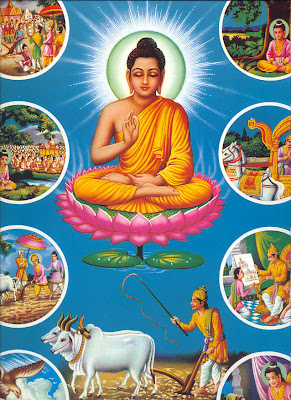Muses and Dakinis

The powerful, creative energy of the muse of poetry, painting, and other arts is thought by others to be a mythical personification of the spirit of creativity in beautiful and seductive female form, but not to the experiencer. Many artists entice and worship the muse who holds the key to their success. The often sudden departure of the muse is treated as more devastating than the ending of a love relationship, leaving the artist unable to function. There definitely are signs that this is equal to the female creative energy of higher tantric practices called dakini. Even the longing and requesting to appear that is experienced by the tantric meditator has great similarity to the creative geniuses that rely on the muse. In the tantric scriptures, the phrases such as, “May the Dakas and Dakinis...” refers to the powerful sacred energies of enlightened beings connected to transcendent development. The dakinis are always female and the males are called dakas. The early tantric societies...




